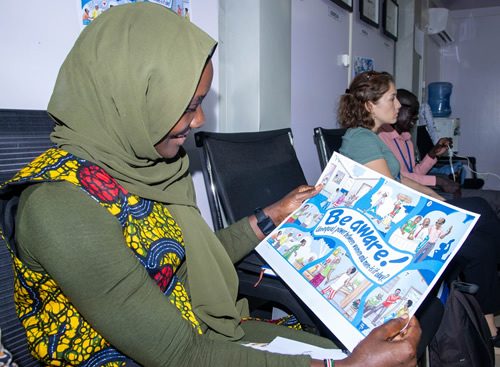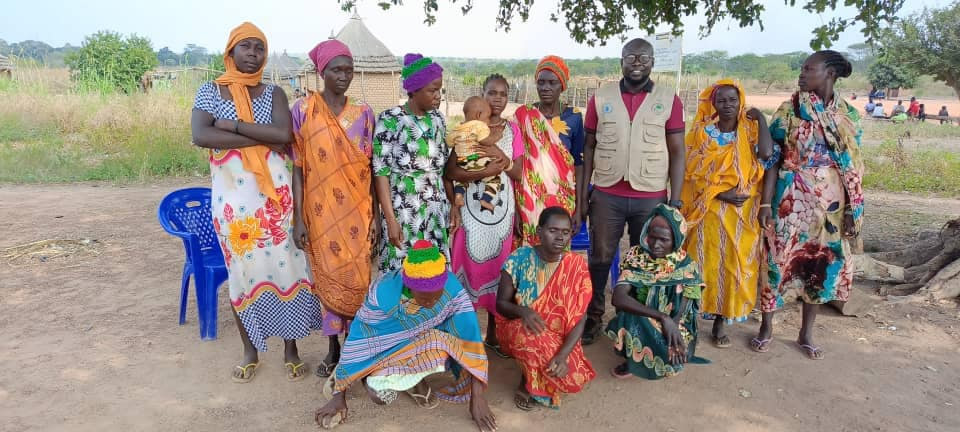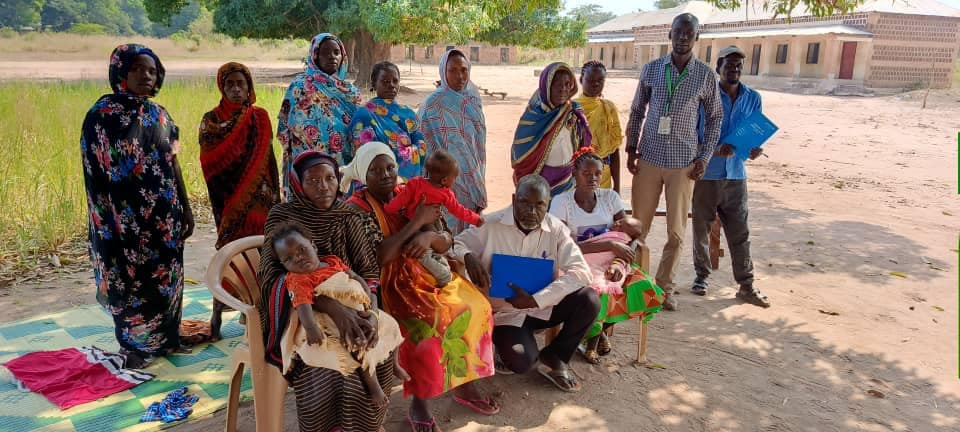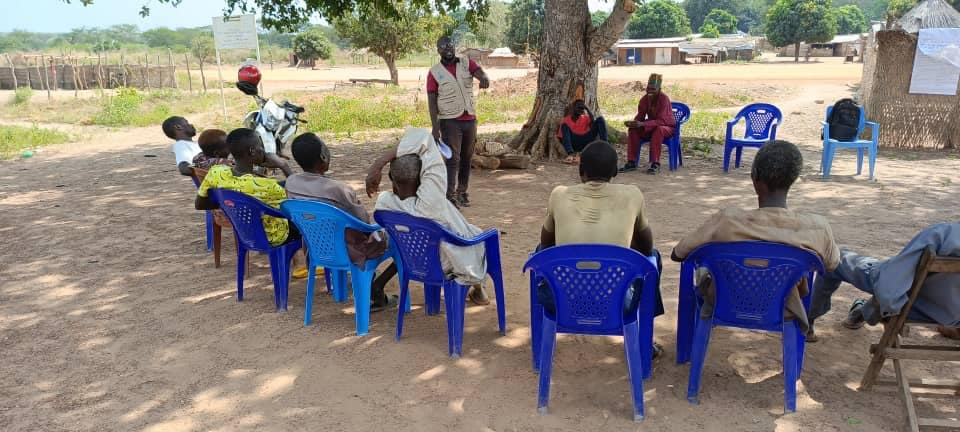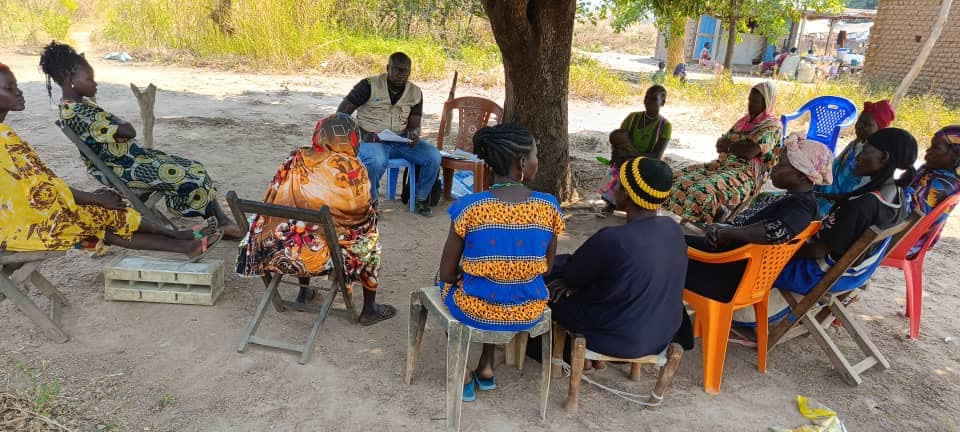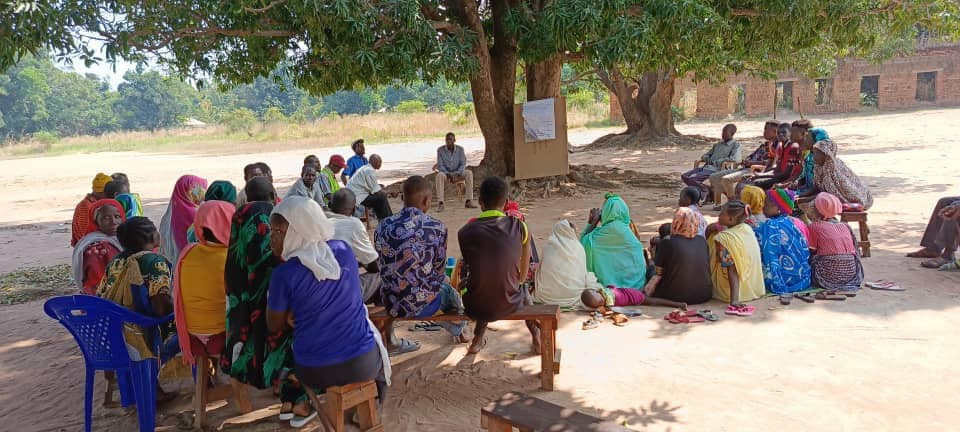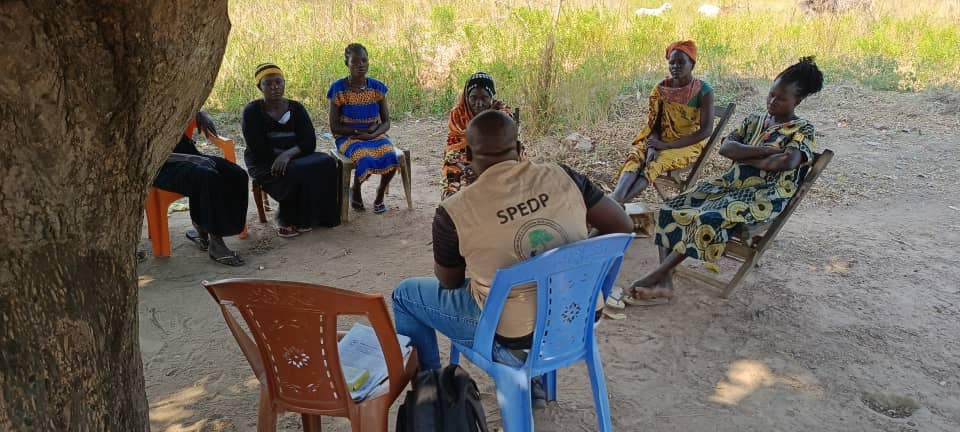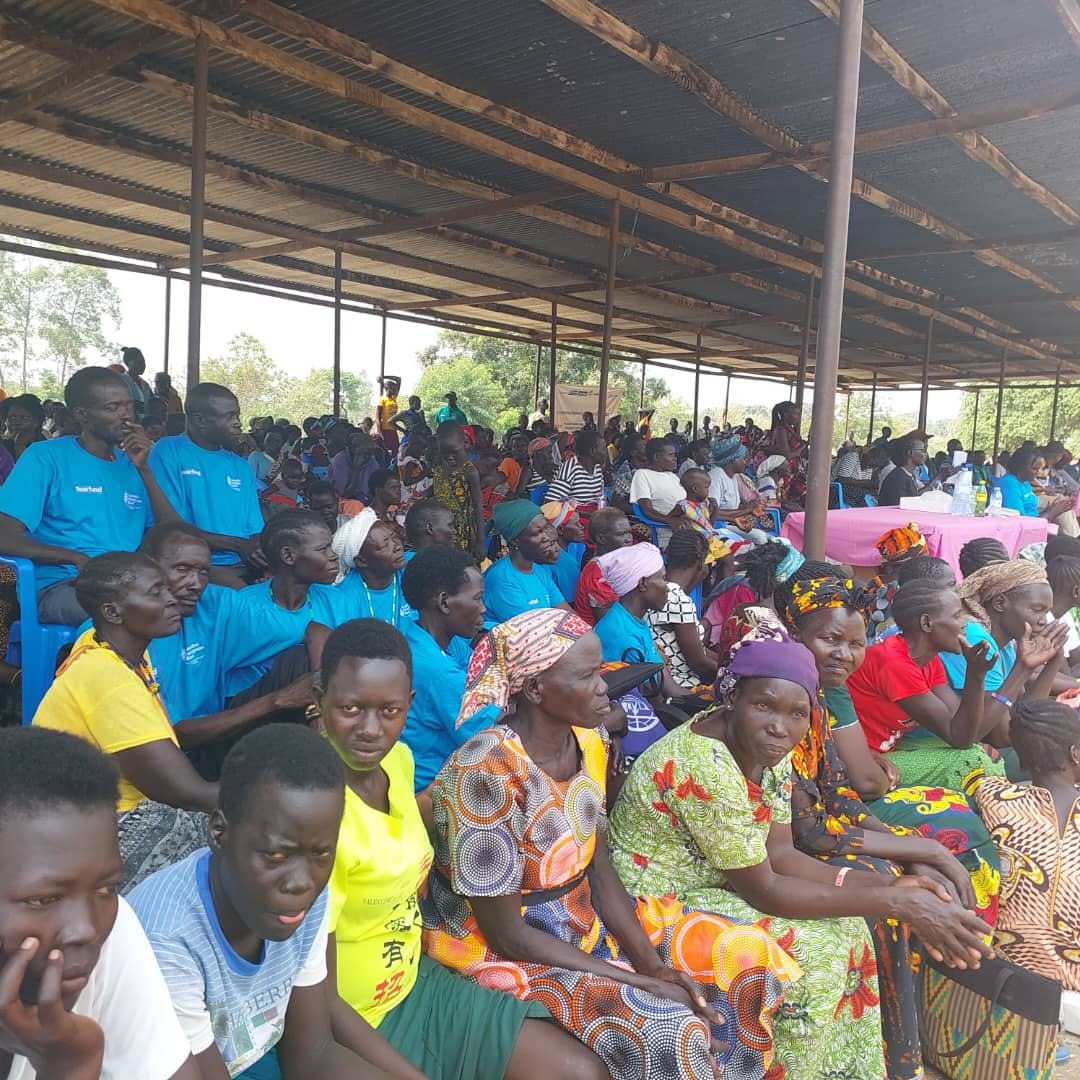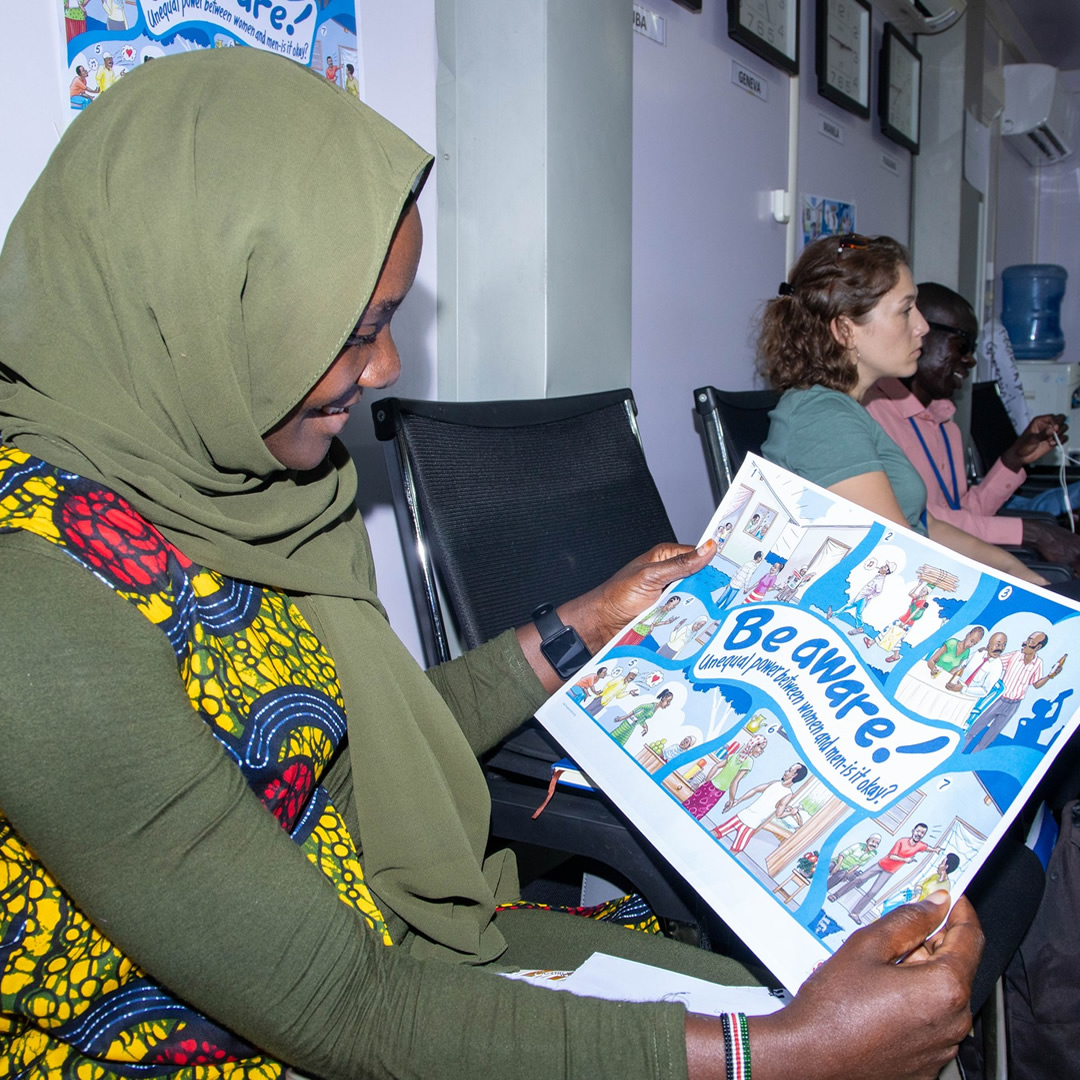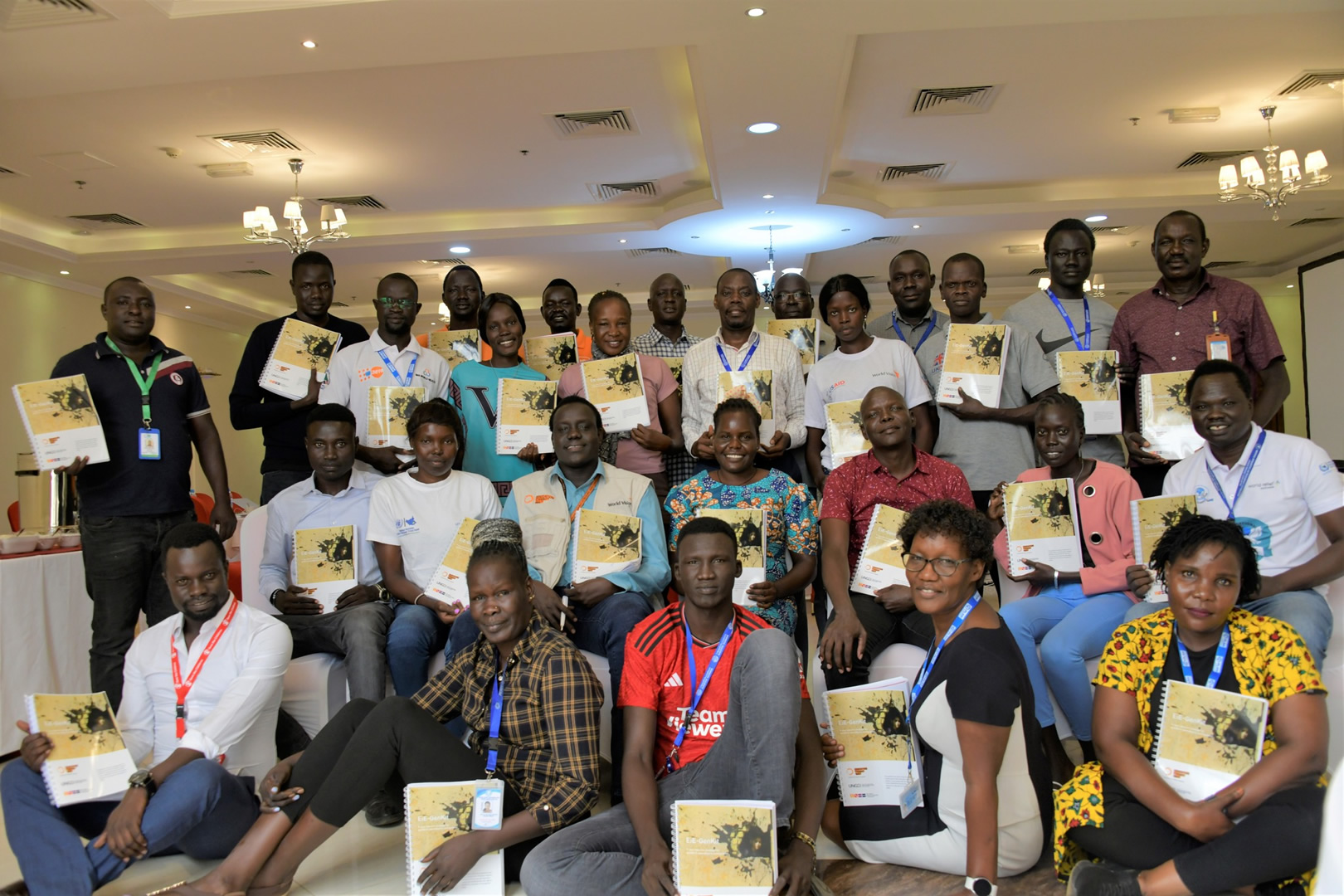The project focused on empowerment of the locals mostly IDPs to access livelihood opportunities through;
- Skills training (tailoring and computer),
- Gender and peace building awareness programs for reconciliation process,
- VSLA transformation programs and
- Reviving and enhancing operations of the Women Center, Grinding mill services, green houses for improved income generation opportunities.
Gender and Peace building Awareness
- Contextualizing the 2018 South Sudan National Peace Agreement
- Communal Gender Based Violence Girls child education and educational opportunities in the county
- Conflict causes, natural resources management and resolution mechanism
- Leadership (Women leader- ship and representation at communal and national structures).
- Vocational skills training opportunities for Target Group 120 participants both male and female from various categories (Women leaders, VSLA group leaders, Government officials, youth leaders, business leaders, Boda Boda associations, Church leaders, security department representatives, and County NGO representatives). In Which (F=54, M= 47).
Income Generating Activities Training 62 trainees successfully completed a 6- month training under the Cost Sharing Basis from July 2018 to December 2018. They will be awarded certificate of completion/ recognition during their graduation as has been the tradition of SPEDP and UN Women. Through these trainings, learners have been empowered to acquire the different skills that will enable them improve their livelihood standards.
They are as follows Tailoring 20 (M=0,F=20), Bed sheet design 10 (M=0,F=10), Basic Computer 32 (M=30,F=2).
Based on the collaborative efforts from both the SPEDP and the local communities, positive progress has been realized in the management and production activities at the different green houses.
At a glance, Melijo green house beneficiaries are about to harvest vegetable crops ready for market as well as utilizing the river banks of Achwa.
Farming Group Along the River Nile of Achwa
As a result of the continuous monitoring and training of the farmers group in Melijo as well as beneficiaries of the green house project, farming along the river bank has also be- come one of the priorities with positive results. With the use of available water through traditional water sprinkling, beneficiaries are farming along the river bank and harvesting vegetables for personal and market sale hence income generation.
Monitoring Green House
For work to go on 110 grams of cu- cumber/capsicum vegetables were procured and provided to beneficiaries in Melijo of which they planned and monitoring was done from the time of land preparation till the current stage were by the vegetables are in flowering and fruiting stage.
Income Generating Activities in Nimule
Trainees in the tailoring and designing classes that have completed their classes awaiting graduation are currently involved in income generating activities within and out of the skills training center. The center has provided the learners with the opportunity to purchase their materials, design and sew them through the guidance of their instructors at the center for sale at the local market.

